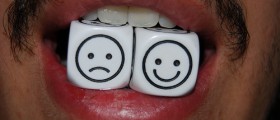
Aripiprazole For Bipolar Disorder and Schizophrenia
Aripiprazole is an anti-psychotic medication sometimes used in the treatment of depression, bipolar disorder, and schizophrenia. Originally it was developed for schizophrenia with bipolar disorder and depression following respectively. In the case of bipolar disorder, patients of all ages are allowed to take aripiprazole to treat manic symptoms. Other than just being used to suppress symptoms, the medication is also employed for maintaining a stable condition of the patient. Compared to some other drugs that are more often used, aripiprazole produces fewer side effects and is in general better endured by users. In many instances, however, the effects of aripiprazole are far stronger if used in combination with other medications. In addition, the Food and Drug Association (FDA) has approved aripiprazole in 2007 to be used for depression but it needs to be used with some other antidepressant drugs in order to be helpful. In fact, the FDA does not allow its usage as a single medication for treating depression. There have also been studies suggesting that aripiprazole reduces the need for cocaine in individuals addicted to the drug. Some experts postulate that such effects are due to the medication’s stimulating of the dopamine receptors. Further, the aripiprazole has been approved by the FDA for elevating the symptoms of moodiness in individuals affected by autism. As aripiprazole is an antipsychotic drug its primary purpose is to treat psychotic episodes. Further, the exact way in which anti-psychotic drugs reduce the symptoms of psychosis is unclear but it is known that they obstruct nerve receptors of numerous neurotransmitters via which the brain cells communicate.Side Effects From Aripiprazole
Some of the most typical side effects of aripiprazole include both physical and mental symptoms. For instance, those taking the medication relatively often exhibit headaches, nausea, and vomiting. Other physical side effects include general feeling of fatigue as well as stomachaches and constipation. Some users of the medication report increased saliva production and feelings of dizziness. When it comes to psychological adverse effects, irritability and sleep problems are often observed. Paradoxically, aripiprazole produced both sleepiness and insomnia. Lastly, patients also complain of vision problems and sexual dysfunction. Some of the less frequently noticed side effects include a combination of symptoms such as rapid changes in blood pressure and heart rate, trouble breathing, excess perspiration, muscle stiffness, and high body temperature. There have been research studies conducted that point to a link between aripiprazole and weight gain as well as fits, tremors, and uncontrollable movements. Men who use the medication sometimes experience painful or prolonged erection. Some patients who are taking the drug face thoughts of suicide or suicide attempts. Speech problems are sometimes observed and so are fainting and allergic reactions. Lastly, individuals over 65 who take aripiprazole for dementia are at an increased risk of a stroke.Using Aripiprazole
In order to take arpiprazole, patients need to have prescriptions from medical care professionals, in most cases probably psychiatrists. Arpiprazole is only available as a brand drug and there is no generic version. The medication should be stored at room temperature and tablets are often taken once per day. The initial dosage starts at 10 or 15 mg and can be increased over time to achieve stronger effects. Arpiprazole can be taken before or after a meal as there is no interaction with food. As is the case with any other doctor prescribed medication, aripiprazole should only be used as advised by a medical care professional for as long as an expert feels is necessary. In order to stop using the medication the patient will need to be prescribed progressively smaller dosages to avoid going into withdrawal. If the dosage is reduced suddenly or the medication is discontinued unexpectedly most patients are likely to experience anxiety, uncontrollable crying, nausea, dizziness, and migraines. Withdrawal symptoms for the majority of anti-psychotic drugs are fairly similar. When it comes to overdosing on aripiprazole, both children and adults experience central nervous system stagnation that fluctuates between sedation and coma. In order to reach such states an individual would have to take 3 to 4 times the prescribed dosage. In addition, persons who are taking medications to either hinder or stimulate the production of certain metabolic enzymes need to consult with medical care professionals when choosing medication, as aripiprazole may not be the right choice. Those who take Tegretol need to be careful as it is proven to decrease the amount of arpiprazole in the body. Pharmacists recommend doubling the dosage of arpiprazole if the individual has to take Tegretol. Any changes in dosages have to be allowed by the primary medical professional. Also, arpiprazole has been shown to alter the subjective effects of alcohol. The drug could increase the depressive and decrease the stimulating effects of drinking. It should be noted that there hasn’t been enough research to support the finding on alcohol and aripiprazole so the data need to be accepted with caution.
















Your thoughts on this
Loading...